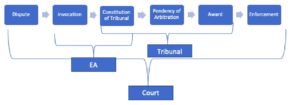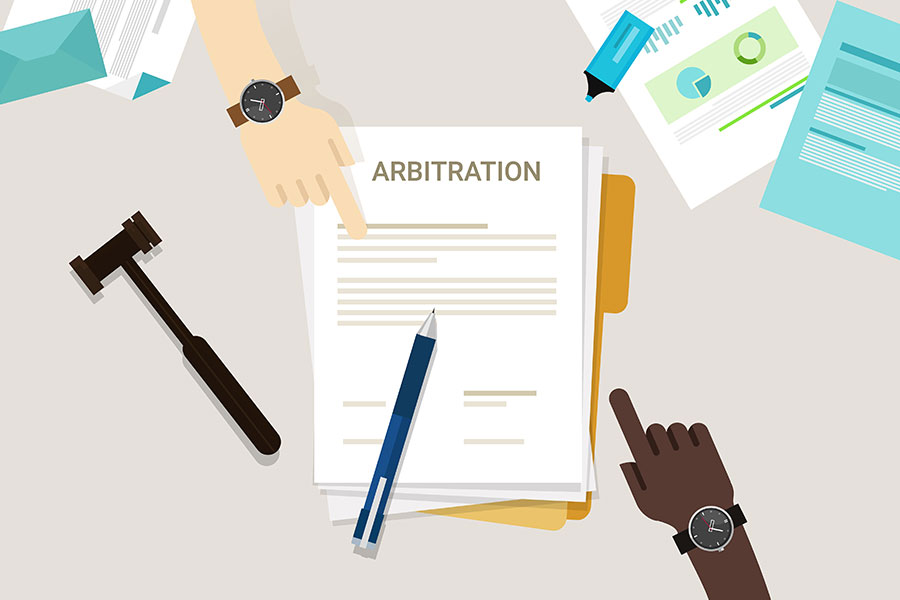Emergency Arbitration: To be or not to be (Enforced)

Introduction
Indian arbitration landscape has seen exceptional growth in recent times. The legislature and judiciary in India have continued to show a pro-arbitration stance in the past decade. Given that Emergency Arbitration proceedings are becoming increasingly popular, especially in International Commercial Arbitration, it becomes imperative to ascertain if Indian legal system provides the means to keep pace with such provisional measures. This article seeks to analyze the Indian Legislative and Judicial landscape for emergency arbitration (hereinafter “EA”), particularly in reference to foreign seated international commercial arbitrations, which may see increased focus due to current economic situation.
Emergency Arbitration: A subset of Interim Reliefs
EA proceedings are envisaged for grant of provisional/ interim reliefs after the arbitration has been invoked, but the tribunal is yet to be constituted.

Position under Indian Law
Arbitration is India is governed by Arbitration and Conciliation Act, 1996 (“the Act”). Part I of the Act (section 2 to 43), barring a few provisions as exceptions[1] applies only to arbitrations seated in India; part II applies to foreign awards and governs their enforcement in India in consonance with the New York Convention. Section 9 of the Act, which is also applicable to foreign seated arbitrations, provides for interim measures by the court prior to the invocation, during the arbitration process and even post the award has been made (prior to the enforcement and only by the successful party).
However, the Act does not explicitly recognize EA proceedings or EA decisions. Under the Act, the definition of an arbitral award includes an interim award[2], but the definition is silent about the status of decisions passed in EA proceedings. The Law Commission of India in its 246th report had recommended the recognition of emergency arbitration in India by suggesting an amendment of the definition of an “Arbitral Tribunal”[3] to include an “Emergency Arbitrator”.[4] This recommendation however was not effectuated in the 2015 Amendment. Thereafter, a High Level Committee to Review the Institutionalization of Arbitration Mechanism in India also reiterated the need for recognition of EA in its report submitted to the Government of India by recommending amendments in definition of an arbitral award and insertion of definition of an “Emergency Award”.[5] However, none of these recommendations have been implemented so far.
Another issue pertains to the nature of an EA decision and the implications of categorizing it as an “order” or an “award”. For instance, under SIAC Rules, the EA decision is categorized as an award.[6] One might argue that since EA decisions are subject to modification and rescindment by the arbitral tribunal and hence are not conclusive determination of issues between the parties, the same are akin to interim measures and should not be accorded the status of an award. The requisite clarity on the said aspect is essential from the point of view of the enforcement of an EA decision when the party refuses to comply, i.e. will such a decision be enforced as an award or an interim measure by the national courts. So, the question of enforcement of an interim “order” as against an “award” passed under EA proceedings is another live challenge which needs legislative attention.
Enforceability of EA Decisions in India
A. In a foreign seated arbitration:
As stated above, the enforcement of foreign awards in India is governed by the Part II of the Act, which is based on the New York convention. The Act in consonance with the New York convention provides that an arbitral award in order to be enforced must be “binding” on the parties. It may be argued that this does not require the award to be “final” in order to be enforced, as long as it is “binding” and hence would cover an EA award, even though the same is the nature of interim relief, subject to modification by the Tribunal.
The Bombay High Court in HSBC PI Holdings (Mauritius) Ltd. v. Avitel Post Studioz Ltd. & Ors.[7] impliedly recognised an EA award as enforceable under Section 48 of the Act and granted interim relief akin to the one passed in EA proceedings under Section 9 of the Act. The Delhi High Court, on the other hand, in Raffles Design International India Pvt. Ltd. v. Educomp Professional Education Ltd[8] observed that in absence of any provisions pari materia to Article 17H (which contains express provisions for enforcement of interim measures) of the UNCITRAL Model Law, in relation to foreign seated arbitrations, the emergency award passed by the arbitral tribunal cannot be enforced under the Act and the only method for enforcing the same would be for petitioner to file a suit. It is pertinent to mention here that both these decisions relate to EA decisions passed under the SIAC Rules, where an EA decision is recognised as an “award”.
B. In an Indian seated arbitration:
One may argue that an emergency award/ order is in the nature of an interim relief by the tribunal in terms of Section 17 of the Act. Section 17(2) of the Act stipulates that any interim order passed by a tribunal, shall have the same effect as an order passed by a Court and is enforceable under the provisions of the Code of Civil Procedure, 1908. But there is no such provision in Part II of the Act, to enable enforcement of interim orders (not in the nature of interim awards), passed by a tribunal in a foreign seated arbitrations.
Further, the Supreme Court in Alka Chandewar vs. Shamshul Ishrar Khan[9] gave an indirect route to seek such enforcement by holding that a party not complying with an interim order of a tribunal can be held liable for contempt of court under Section 27(5)[10] of the Act. This decision, though rendered in relation to a domestic arbitration can be extended to an interim order passed in a foreign seated arbitration, by virtue of the 2015 amendment which makes Section 27 of the Act applicable to foreign seated arbitrations.
Conclusion
To sum up, there is a legislative lacuna under the Indian law with respect to emergency arbitration proceedings. Having said that, there are indirect ways to enforce the decisions rendered by emergency arbitrator, which are as follows:
Indian seated arbitration:
- As an interim award/ order under Section 17 of the Act to be enforced under provisions of CPC akin to order by court.
- Through contempt proceedings under Section 27(5) of the Act.
Foreign seated arbitration:
- Through contempt proceedings under Section 27(5) of the Act.
- By filing an application under section 9 for interim measures from court in India.
- By initiating enforcement proceedings under Part II of the Act (still to be tested).
[1] By virtue of proviso to section 2(2) of the Act: section 9 (interim measure of protection), section 27 (court’s assistance in taking evidence), section 37(1)(a) (appeal from an order refusing to enforce an arbitration agreement) and section 37(3) (no right of a second appeal) from Part I also apply to foreign seated arbitrations.
[2] Section 2(1)(c) of the Act
[3] Section 2(1)(d) of the Act.
[4] The Commission has, therefore, recommended the addition of Explanation 2 to section 11(6A) of the Act with the hope that High Courts and the Supreme 10 Court, while acting in the exercise of their jurisdiction under section 11 of the Act will take steps to encourage the parties to refer their disputes to institutionalised arbitration. Similarly, the Commission seeks to accord legislative sanction to rules of institutional arbitration which recognise the concept of an “emergency arbitrator” – and the same has been done by broadening the definition of an “arbitral tribunal” under section 2(d).
[5] Recommendations 1. Clause (c) of sub-section (1) of section 2 of the ACA may be amended to add the words “an emergency award” after the words “an interim award”. 2. Clause (d) of sub-section (1) of section 2 of the ACA may be amended to add the words “and, in the case of an arbitration conducted under the rules of an institution providing for appointment of an emergency arbitrator, includes such emergency arbitrator;” after the words “…panel of arbitrators”. 3. An emergency award may be defined as “an award made by an emergency arbitrator”.
[6] Rule 1.3: “Award” includes a partial, interim or final award and an award of an Emergency Arbitrator;
[7] Arbitration Petition No. 1062 of 2012, decided on 22.01.2014 – BOMHC).
[8] O.M.P.(I) (Comm.) 23/2015, CCP(O) 59/2016 and IA Nos. 25949/2015, 2179/2016.
[9] S.L.P.(Civil) No.3576 of 2016.
[10] Section 27. Court assistance in taking evidence
(5) Persons failing to attend in accordance with such process, or making any other fault, or refusing to give their evidence, or guilty of any contempt to the arbitral tribunal during the conduct of arbitral proceedings, shall be subject to the like disadvantages, penalties and punishments by order of the Court on the representation of the arbitral tribunal as they would incur for the like offences in suits tried before the Court.”





